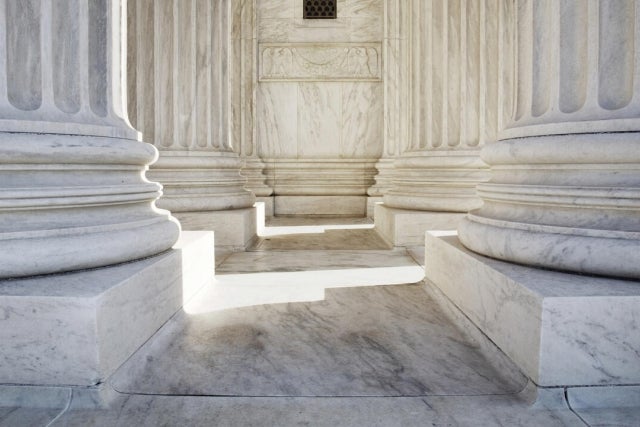White Collar Briefly

White Collar Briefly
Drawing from breaking news, ever changing government priorities, and significant judicial decisions, this blog from Perkins Coie’s White Collar and Investigations group highlights key considerations and offers practical insights aimed to guide corporate stakeholders and counselors through an evolving regulatory environment. Subscribe 🡢
Novel Spoofing Case Against Software Developer Ends in Mistrial
Following a week of trial proceedings in the case of defendant Jittesh Thakkar—a software programmer indicted in February 2018 on conspiracy and aiding and abetting charges related to a spoof trading scheme—the government's case against Thakkar ended in a mistrial.

Forward at Your Own Risk – U.S. Supreme Court Expands the Scope of Rule 10(b)-5 Liability
The U.S. Supreme Court recently handed down a win for the SEC and private securities litigants, significantly broadening the scope of primary liability under Rule 10b-(5).

Bellwether Spoofing Case Goes to Trial in Chicago
Can a software programmer be held criminally responsible for designing a program that a trader uses to "spoof" the commodity futures market?

UK’s Impending “Name and Shame” for Supply Chain Forced Labor
The U.K. Modern Slavery Act of 2015 requires companies falling under its jurisdictional hook to honestly and completely disclose their efforts to eradicate trafficked, slave, indentured, coerced and child (collectively "forced") labor from their supply chains.

Higher Ed: Admissions Scandal Wake Up Call
The arrests in the college admissions bribery scandal may have ushered in a new era of scrutiny by federal law enforcement.

CFTC Dips Its Toe into Anti-Corruption Space
On March 6, 2019, the Division of Enforcement of the U.S.
Financial Crisis—Six Lessons Learned for Legal Counsel
During the financial crisis, government enforcement agencies started taking a hard look at Wall Street institutions, and these days a company must respond proactively and dynamically when addressing the challenges of government investigations and litigation.

Revisiting Agency Liability Under the FCPA Post-Hoskins

SEC’s Polycom FCPA Settlement Leaves Unanswered Questions
On December 26, 2018, the Securities and Exchange Commission ("SEC") announced a settlement with communications technology firm Polycom, Inc.

Preparing Your Company to Respond to Unannounced Government Visits (Part 2)
This series, written by recent in-house counsel and former federal prosecutors, aims to help in-house legal and compliance teams avoid the types of seemingly minor or inconsequential missteps that can lead to aggressive government responses, including parallel c
What Does the 2018 Farm Bill Mean for Hemp/CBD Businesses?
On December 20, 2018, President Trump signed the Agriculture Improvement Act of 2018 (popularly known as the 2018 Farm Bill) into law.

Preparing Your Company to Respond to Unannounced Government Visits (Part 1)
This series, written by recent in-house counsel and former federal prosecutors, takes a practical approach to helping in-house legal and compliance teams operating in a world of complex regulatory schemes and increased whistleblower activity.

SEC May Limit “Game Changing” Whistleblower Bounties
On June 28, 2018, the U.S.

SCOTUS Finds SEC ALJ Appointments Unconstitutional
On June 21, 2018, the Supreme Court issued its highly anticipated opinion in Lucia v. SEC, finding that the manner in which the U.S. Securities and Exchange Commission (SEC) selects its "in-house" administrative law judges (ALJs) violates the Appointments Clause of the Constitution.

Courts Continue to Grapple with Border Searches of Electronic Devices: Fourth Circuit Rules Forensic Searches Require Individualized Suspicion
On May 9, 2018, the Fourth Circuit Court of Appeals issued an opinion in United States v. Kolsuz, holding that the Fourth Amendment requires individualized suspicion for forensic searches of cell phones seized at the border.